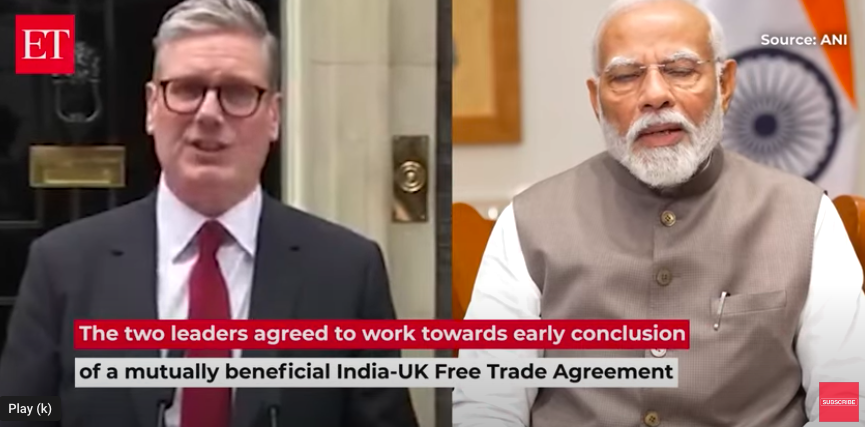Starmer and Modi want to reach a free trade agreement soon

Britain’s new prime minister Keir Starmer and his Indian counterpart, Narendra Modi, agreed on one thing when they spoke for the first time on the phone on Saturday (July 7).
They agreed to reach a free trade agreement soon.
Earlier, Modi tweeted his good wishes to Starmer, congratulating him on his election victory.
Negotiations began in 2022
Britain and India have been negotiating for a free trade agreement since 2022 following Brexit – Britain’s exit from the European Union.
The 14th round of the FTA negotiations was held in April, before the start of the Indian elections which returned Modi to power for a third consecutive term.
“The two leaders agreed to work towards early conclusion of a mutually beneficial India-UK Free Trade Agreement,” India’s Ministry of External Affairs said in a press note.
“Discussing the Free Trade Agreement, the (British) Prime Minister said he stood ready to conclude a deal that worked for both sides,” said a press statement released by the UK government.
Modi also invited Starmer to visit India at the earliest opportunity.
The free trade agreement negotiations began in January 2022 to increase bilateral trade, currently worth £38.1 billion a year, according to the Business Standard.
Sticking points
The then British prime minister Boris Johnson expected the deal to be concluded before the end of 2022. But the negotiations took time because of several issues.
The Indian ambassador to the UK, Vikram Doraiswami, recently said that India’s main issue has been to ease intra-company transfers to allow professionals to work in the UK. Meanwhile, the UK has pushed to secure increased access to the Indian services market and lower tariffs on products such as whisky and cars.
Enjoying this article?
Subscribe to get more stories like this delivered to your inbox.
New Delhi is seeking temporary visas for its service sector workforce under the free trade agreement. But both Tories and Labour want to restrict immigration, and Labour is likely to negotiate hard on the visa issue.
India is also likely to face tougher negotiations on climate from the Labour government. Labour has repeatedly flayed the Tories for deviating from the UK’s 2030 net zero goals.
Senoir Editor
